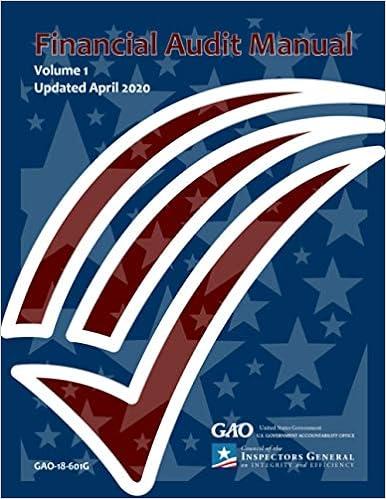Question
In 2014 PPP individually sold Elsa Dolls for $200, individually sold Anna Dolls for $180. They were also in production of an Olaf doll which
In 2014 PPP individually sold Elsa Dolls for $200, individually sold Anna Dolls for $180. They were also in production of an Olaf doll which they expected to sell individually for $150. During 2014 they sold combo packages of either Anna or Elsa with Olaf for $300 and $325 respectively. Customers who purchased the combo package would be shipped an Olaf Doll as soon as it was completed which is expected to be in the beginning of 2015. Per unit sales of each of these three options are as follows
Package Units Sold
Elsa 10,000
Anna 8,000
Combo Pack (Elsa) 1,000
Combo Pack (Anna) 1,200
In an effort to encourage prompt payment of their accounts receivable PPP offers all their customers a prompt payment discount with the terms 2/5 net 60. Customers tend not to take advantage of the discount and instead prefer to pay close to the end of the 60 day grace period. PPP accounts for these discounts using the Gross Method. During 2014 all customers who purchased a Combo Pack (either Anna or Elsa) paid for their purchase up front with cash. All customers who purchased an Anna Doll individually paid for their doll on account but paid off the account within the 5 day discount window. All customers who purchased an Elsa doll paid for their doll on account and did not pay within the 5 day discount window. Cash collections from Elsa customers who made purchases during 2014 totaled $1,000,000.
The balances at 1/1/2014 in Accounts Receivable and Allowance for Doubtful Accounts were $1,200,000 and $40,000 respectively. In early 2014 PPP collected cash relating to sales from the prior period in the amount of $1,200,000. On March 17, 2014 PPP received a check in the mail for $10,000 from a customer whose account had been written off during 2013. On June 1, 2014 PPP decided that a $20,000 account relating to a sale from a prior year was uncollectible and needed to be written off.
At the end of the year PPP evaluated its accounts receivable balance and used the following aging schedule to determine its journal entry to record bad debt expense.
| Days Outstanding | AR Amount | Likelihood of Collection |
| Under 30 | 500,000 | 99% |
| 31 60 | 300,000 | 97.5% |
| 61 90 | 150,000 | 85% |
| Over 90 | ?????? | 60% |
| Total | ?????? |
Part II
Required:
- Make 4 separate journal entries to record the effects of the sales during 2014 for the 4 different packages that PPP offers.
- Record journal entries for all cash payments received by PPP during the year relating to their accounts receivable.
- Record journal entries for any writeoffs and/or reinstatements that need to be accounted for during the year.
- Record the journal entry to recognize bad debt expense during the year.
- Assume that instead of the aging method PPP decided to use the percentage of sales method to estimate bad debts during the year and estimated 1% of credit sales to be uncollectible. Make the journal entry to record bad debt expense under this method.
Step by Step Solution
There are 3 Steps involved in it
Step: 1

Get Instant Access to Expert-Tailored Solutions
See step-by-step solutions with expert insights and AI powered tools for academic success
Step: 2

Step: 3

Ace Your Homework with AI
Get the answers you need in no time with our AI-driven, step-by-step assistance
Get Started


